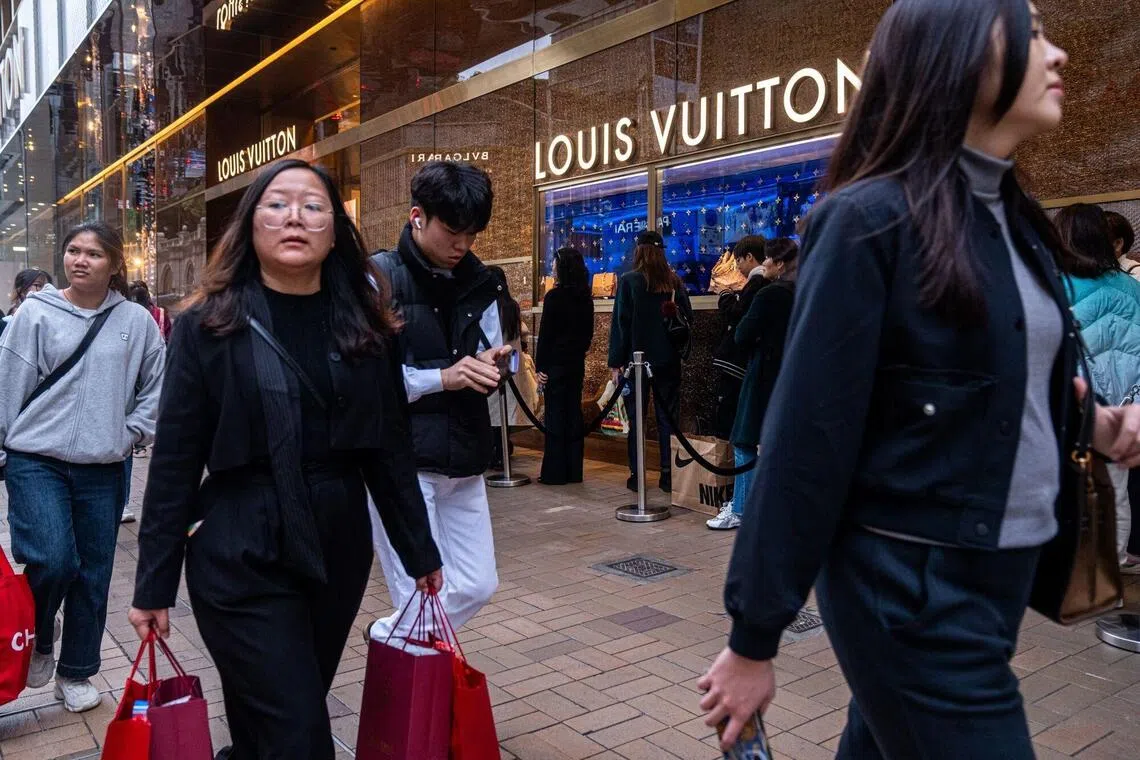For subscribers
Why Louis Vuitton is struggling but Hermes is not
Worries that the luxury business is peaking are overblown.
Sign up now: Get ST's newsletters delivered to your inbox

Sales of fashion and leather items at LVMH, the world’s biggest luxury conglomerate, have tumbled.
PHOTO: BLOOMBERG
There will be fewer designer handbags or high heels under the Christmas tree in 2024. Spending on personal luxury goods is set to fall by 2 per cent in 2024, according to Bain, a consultancy. Sales of fashion and leather items at LVMH, the world’s biggest luxury conglomerate, have tumbled. Kering, which owns Gucci, has issued a string of profit warnings. Anyone that receives Versace goodies from Santa may feel a little less pleased than usual. The luxury brand is selling 40 per cent of its products at a discount.
These travails follow an extraordinary rise for the luxury industry. For two decades it expanded smartly as brands reached new customers. In 2023 global sales of personal luxury goods hit US$400 billion (S$540 billion), up from a little over US$100 billion in 2000, according to Bain. The combined market capitalisation of the 10 most valuable Western luxury firms approached US$1 trillion, compared with around US$300 billion in 2013. Over the past 12 months, however, their value has fallen by more than a tenth and growth has reversed. Can luxury recapture its lost allure?


